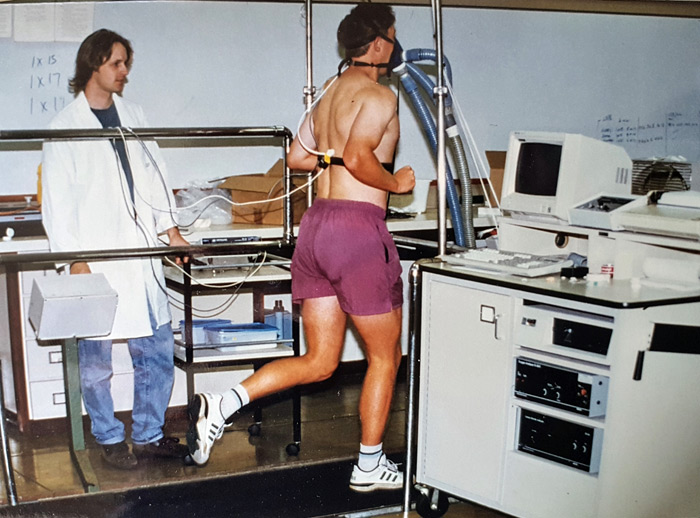What does an Exercise Physiologist do?
An exercise physiologist is someone who has studied exercise physiology, also sometimes called kinesiology or exercise science. It is the study of the principles of mechanics and anatomy in relation to human movement, and how the stress of exercise affects the body. Common areas in which exercise physiologists work are injury and illness prevention, rehabilitation and teaching. You may manage a wellness center, design training programs and fitness test athletes, and conduct scientific research. Other careers include personal trainers, recreational therapists, and aerobics instructors.
 An exercise physiologist in the laboratory
An exercise physiologist in the laboratoryHow to become an exercise physiologist
Most jobs as an exercise physiologist require a minimum of a Bachelor's Degree in applied science with a major in exercise physiology or similar, and possibly a master’s degree. In their coursework, students may learn about anatomy, nutrition, and the science of exercise (physiology, biomechanics, psychology). See exercise physiology courses.
Once you have your qualifications, you may need to be accredited with your local national body. In the US, look to the American College of Sports Medicine and The American Society of Exercise Physiologists for accreditation details. In Australia, the accrediting body is the Australian Association for Exercise and Sport Science (AAESS), and in England it is British Association of Sports and Exercise Sciences (BASES). See more about accreditation.
Related Pages
- Information about accreditation as a exercise physiologist
- Exercise physiology courses
- University admission fitness testing
- A career as a personal trainer
- More Careers in Sport
- Famous exercise physiologists


 Current Events
Current Events